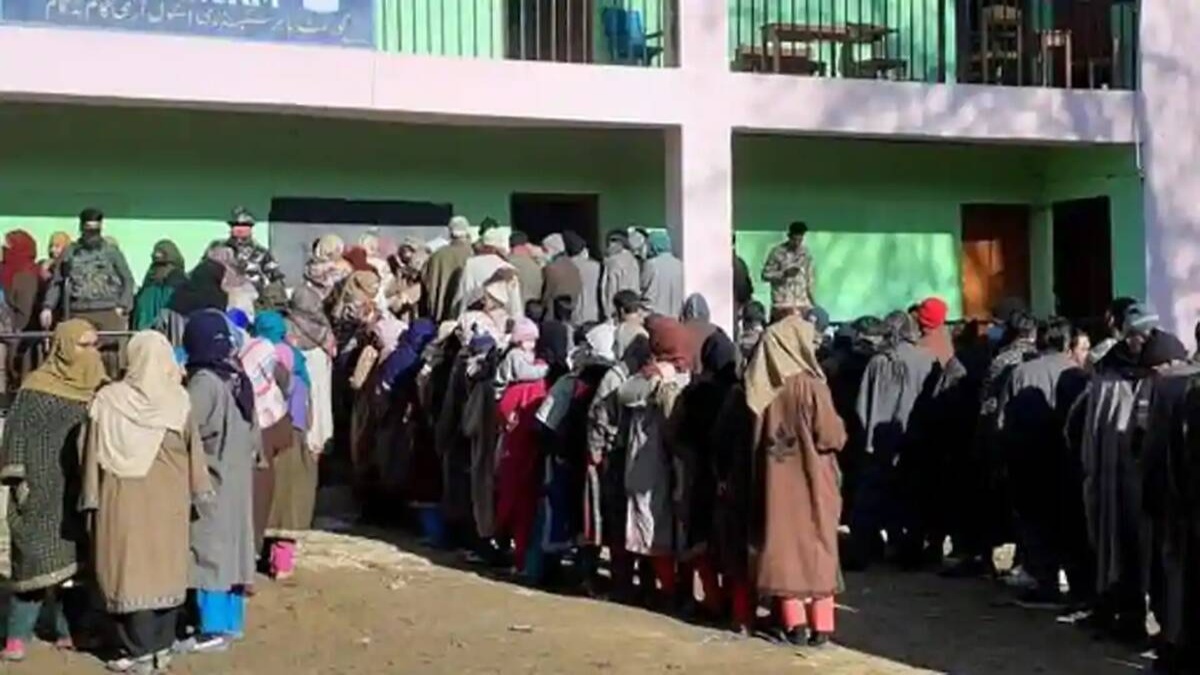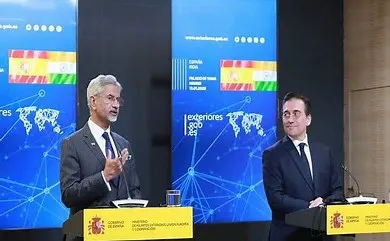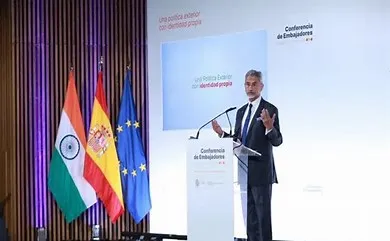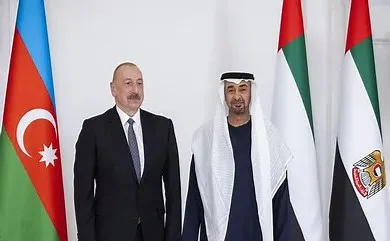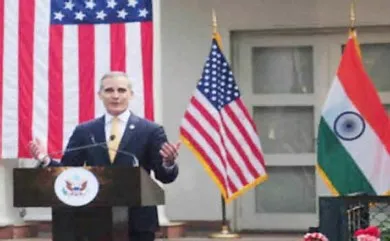Prime Minister Narendra Modi in and out of Parliament loudly pronounced amongst other objectives for abrogation of Articles 370 and 35-A and eventual bifurcation of erstwhile Jammu and Kashmir state into two Union Territories: That the natives who have been forced to live out of Kashmir shall be repatriated back in their homeland.
No matter which party/Parties have finally made it to grassroots power structure.the District Development Councils. Huge participation of voters across all the districts in the JK Union Territory reflected people’s conscious political choice for inclusive democracy,peace and development over separatism ,despondency,and exclusiveness.
People’s political wisdom and choice of democracy calls for celebration.Long live the democracy.
After successful DDC elections and its concomitant process of establishment of District development councils in each district and elections of its Chairpersons and other concerned committees the process is likely to be completed in near future.The political process has actually set in for eventual assembly elections sooner than later.Be it as May -The most important issue of reversal of Kashmiri Pandits exile deserves the foremost utmost priority.without the physical return, rehabilitation and restitution of this native population back in the Valley,peace efforts will allude and all other politico-economic process will be a smoke screen.Govt. Of India would be accused of wilful neglect and in breach of constitutional mandate for denial of right to life,liberty and dignity in their homeland to the aborigines native population of seven hundred thousand people living in exile for more than three decades.
HOW LONG ABORIGINES KPS HAVE TO WAIT TO RETURN HOME
Enough is Enough: Three decades of exile is too long and traumatic -Shiriman Pradhan Mantari.
Exiled natives are longing to return home and awaiting for accomplishment of the PM’s promises on this issue.Now that DDC elections are over and huge people’s participation especially the women and youth can be a game changer and people have preferred democracy,peace and development as future way forward than separatism,despondency and militancy.Exiled Natives are expecting the next agenda with Modi:2 hopefully is and would be repatriation and return of the aborigines Kashmiri Pandits.
Jammu and Kashmir entered a ferocious wave of terrorists violence in the 1990s, when religious radicalization and terrorism became a new weapon in a full-blown insurgency against the Indian State. The Kashmir Valley, once the center of multiculturalism became the focal point of a proxy war. Indeed, Pakistan’s premier Intelligence agency, the Inter-Services Intelligence (ISI) sponsored notorious terror organizations such as JKLF,Lashkar-e-Taiba and Hizbul-Mujahideen etc., providing them with weapons, logistical support and training facilities in so-called ‘Azad’ (‘free’) Kashmir. The objective was to annex the Kashmir Valley, and cleanse it of non-Muslim minorities. As such, the tragic event that came to be known as the mass Exodus of Kashmiri Pandits unfolded when scores of Pandits, as well as hundreds of Kashmiri Muslims, were killed by Kashmiris who had been indoctrinated by the anti-Hindu, anti-India propaganda disseminated from the Pakistani side of the LoC. After killing hundreds of Pandits including women,children & even the infants,by inflicting ethnic cleansing all most the entire population was forced to leave their ancestral homes in the Valley and had to live in refugee camps in Jammu and other parts of India .The terrorists achieved the target of demographic change they had set out and from there undertook further campaigns of religious persecution in Jammu.
The seeming silence by the political spectrum of India over the gross neglect by successive Governments on the plight of exiled natives of Kashmir is intriguing and the conspicuous callousness of Modi:2 is more palpable.
In Jammu and Kashmir, there are layer upon layers of distortions of history, self-serving myths and competing political interests. Peeling off these layers by revisiting history, without any prejudice, can only help in our search for a brighter tomorrow for Jammu and Kashmir.
The J&K policy needs to combine between what the country pursues as domestic policy on one hand and the treatment of Indo-Pakistan relations as foreign policy, on the other.
The return of the exiled Pandits back to the Kashmir Valley with pride, is a matter of enforcing India’s Constitution in Kashmir.It is important to restore and protect multiculturalism, plural ethos and the secular identity of India and the Jammu and Kashmir state.
Return, restitution and retention of exiled Pandits as a religious Hindu community, shall be the real test of the will of the central government and the governor’s administration.
No solution to Kashmir will make any headway unless the Pandits are rehabilitated, return to the Valley and are made part of the dialogue process as an important stakeholder.
It is the constitutional and political duty of the government of India and the Jammu and Kashmir government to repatriate the entire exiled Pandit community back to their homeland. It is also their duty to probe the reasons and circumstances of ethnic cleansing, fixing the responsibility for the killing of innocent citizens.
After almost ten months of 5th.August 2019 decision of abrogation of Article 370 and 35-A, a sense is gathering around that their plight as native exiled Kashmiri is being slowly forgotten. Everybody sheds crocodile tears over their suffering, but nothing by way of action is seemingly visible by the Modi-2.0 and JK Union Territory Government. The future of Pandits, as an important stakeholder and a relevant component to the resolution of the Kashmir imbroglio, is less and less talked about.
Kashmiri Pandits have an existential stake in the Valley. They have to be physically present on the soil of the Valley as living component and stake holders and day to day participants in the socio-economic, political, cultural and spiritual ethos of Kashmir valley, otherwise how will the present as well as future generations realise that Kashmir is the keystone of their heritage through millennia, finding mention even in the Indian oldest scriptures?
Kashmir was considered the abode of Saraswati, the highest seat of learning in India, and was also referred to as Sharda Peeth. So much so that students on graduating from Kashi would take four symbolic steps towards Kashmir, denoting their aspiration for higher learning. Almost the entire body of Sanskrit literature has its origins in Kashmir.
Rajatarangini, an authoritative historical tome on the royal lineage of Kashmir, written by Kalhana in the 12th century, outlines the greatness of King Lalitaditya, possibly the most powerful Indian emperor of all times, whose kingdom in the 8th century extended from the Caspian Sea in the north to the Kaveri basin in the south, and included Assam in the east. How many Indians have even heard his name? How many of us know that Srinagar was established by Ashoka the Great?
Mahayana Buddhism was spread across mid Asia, China and Japan by Kashmiri monks. Patanjali gifted his yog sutra to humanity and his. Sarangadeva is considered the father of both Hindustani and Carnatic music. Acharya Abhinav Gupta, one of the greatest scholars of all times, wrote 46 literary classics, including the renowned Abhinav Bharti. His principles of RAS are being taught in 80 universities around the world. Why educationists and policymakers are deliberately withholding such vital slices of history from our textbooks?
Kashmiri Pandits have rich heritage and their roots are engraved in the soil of the Valley for more than five thousand years. That can neither be destroyed nor obliterated by any power more so by unleashing terror and vicious campaign.
Governor Rule gives all statutory powers to the state government to do justice to this illustrious community, who are now living as refugees in their own country for the last 30 years.
It is hoped that the central government shall revisit its J&K policy by demonstrating political will and large-heartedness in dealing with the Kashmir situation and liberally fund the return, rehabilitation and security of Kashmiri Pandits back in their homeland, which is the Kashmir Valley.
To quote what former Prime Minister IK Gujral once said, “For the illustrious Kashmiri Pandit community, which has contributed a great deal in shaping the nation building a democratic, progressive and secular India, if the coffers of the country are to be emptied for them, it would still be a small price to pay.”
It is important for the state governor to rise above civil service jargon while designing a package for the return of Kashmiri Pandits. It is also imperative to hold consultations with representatives of Kashmiri Pandits, so that all aspects are taken into account and the entire gamut of present and future problems analysed threadbare and in complete detail.
Kashmiri Pandits are a religious minority, which calls for due statutory recognition. The constitution of a state minority commission shall be a good step in this direction.
The MHA being the nodal ministry, shall start a structured dialogue with Pandits, for designing a comprehensive, time-bound package for return and rehabilitation and political empowerment.It shall not take more than two years for its implementation.
Pandits believe that if the exiled community is not repatriated back to their homeland with dignity and pride now, then it will be never and eventually this illustrious community will disintegrate.
Ashok Bhan is Sr. Advocate, distinguished fellow USI And ; Chairman: Kashmir (Policy and Strategy) Group.
Prime Minister Narendra Damodar Modi in and out of Parliament loudly pronounced amongst other objectives for abrogation of articles 370 and 35-A and eventual bifurcation of erstwhile Jammu and Kashmir State into two Union Territories -that the natives who have been forced to live out of Kashmir shall be repatriated back in their homeland.Kashmiri Pandits are living in exile for more than three decades.

